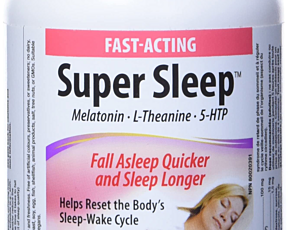Is Invert Sugar Bad For You?
Also Known As: inverted or invert sugar syrup
Short answer
Yes, just like all sugar, invert sugar can be bad for you. It’s an incredibly sweet, syrup-like substance that’s used in pastries, candies and more. Unfortunately, there is no established acceptable daily intake (ADI) for invert sugar—but over-consumption can lead to dental problems, diabetes, and obesity.
Harmful to your health. Very few, if any, benefits are present. Things in this category should be avoided as much as possible.
View Full Grading System
Category 'A'
Very healthy and numerous health benefits. Side effects are rare. Things rated an 'A+' are typically necessary for survival (for example, water).
Very healthy and numerous health benefits. A few harmful qualities may be associated, but only under certain circumstances such as an allergic reaction.
Very healthy and numerous health benefits. Harmful qualities may be associated, but aren't usually serious.
It is important to note that even the best things in life can become bad in immoderate amounts. So, although something may be rated an 'A+', overconsumption/overdoing can bring unwanted effects.
Category 'B'
Very beneficial to your health. Things rated a 'B+' may have a few harmful qualities to pay attention to.
Overall beneficial to your health. Things rated a 'B' may have some harmful qualities to pay attention to.
More beneficial to your health than not. However, harmful qualities are most likely associated and shouldn't be overlooked.
The main difference between category 'A' and category 'B' is the harmful qualities typically present in 'B' items. Serious side effects are usually uncommon, but are still possible and should be taken note of.
Category 'C'
Both beneficial and harmful qualities associated. Things rated a 'C+' are typically a bit more on the beneficial side. Still, moderation is important.
A fairly even ratio of beneficial and harmful qualities. Moderation is important. Very general topics that can lean towards both sides of the spectrum will be placed here as well. Rice, for example, can be good or bad depending on the type.
More harmful than beneficial. Side effects are common, especially when consumed/done excessively. Moderation is very important.
Category 'C' usually denotes to both good and bad qualities. When it comes to this category, it is important to keep this word in mind: moderation.
Category 'D'
Harmful to your health. Although benefits may be associated, the bad most likely outweighs the good. Moderation is very important.
Harmful to your health. A few benefits may be associated, but the bad outweighs the good. Moderation is extremely important.
Harmful to your health. Very few, if any, benefits are present. Things in this category should be avoided as much as possible.
Category 'D' is typically for things that are more harmful than beneficial. While consuming/doing something unhealthy once in a blue moon shouldn't hurt, we definitely recommend eliminating 'D' items as a regular part of your routine/diet.
Category 'F'
Category 'F' is for things that fail to bring anything beneficial to the table, and are very harmful to your health. We recommend completely avoiding anything in this category. Long-term side effects of 'F' items are usually very serious.
Category 'N'
'N' stands for neutral. Things placed into this category are generally (a) neither good nor bad for you, or (b) lack the necessary evidence to reach any conclusions.
Long answer
Invert or inverted sugar is made from a combination of glucose and fructose. It’s formed by splitting sucrose into these two components, which gives it a sweeter taste. Its unique production also makes it more apt to retain moisture, which makes it great for baking. Invert sugar is also less likely to crystallize, meaning it's perfect for food processing and prolonging the product’s shelf life.
But does invert sugar offer any health benefits? Or could it be bad for you?
Invert sugar is just that: sugar. So it comes with all of the same concerns as regular sugar, including tooth decay, diabetes, and obesity. And of course, obesity leads to more serious health problems like hypertension and heart disease.
However, invert sugar differs from other types of sugar in that there aren’t a lot of clear guidelines regarding how much you can safely consume. There’s currently no acceptable daily intake (ADI) set for invert sugar, so it’s difficult to gauge what your exact limit should be.
Most nutritionists recommend invert sugar be counted as part of the daily intake of refined sugar. According to the World Health Organization, refined sugar should account for no more than 10 percent of your daily calories, which works out to be a maximum of about 12 teaspoons. But when it comes to invert sugar specifically, it’s better to tread lightly: the fructose within invert sugar is unbound, which means it could be slightly more detrimental to health. It’s very similar to High Fructose Corn Syrup, but it’s made from beets or cane.
So how can you avoid invert sugar? The easiest way is to steer clear of sweet, overly processed products. Invert sugar is typically found in syrup, honey, candy, chocolate, and liqueur. It’s even used in some cigarettes as a casing. If you’re not sure whether or not invert sugar is used in a product, check the label. It’s sometimes called “inverted sugar” or “invert sugar syrup.”
If you can’t avoid invert sugar, you should still strive to limit your intake. But keep in mind that the guidelines set forth by the World Health Organization are just that: guidelines. Talk to your physician about the amount of invert or refined sugar that is safe to consume for your specific diet.
Possible long-term side effects
- tooth decay
-
diabetes
-
heart disease
-
weight gain, obesity
-
cancer
-
non-alcoholic fatty liver
Commonly found in
Ingredients to be aware of
Benefits
- tastes sweeter than sucrose
-
provides ideal consistency for baking
-
prolongs product shelf life
Please turn your Ad Blocker off to see this content. Thank you!
 Approved by
Approved by 















